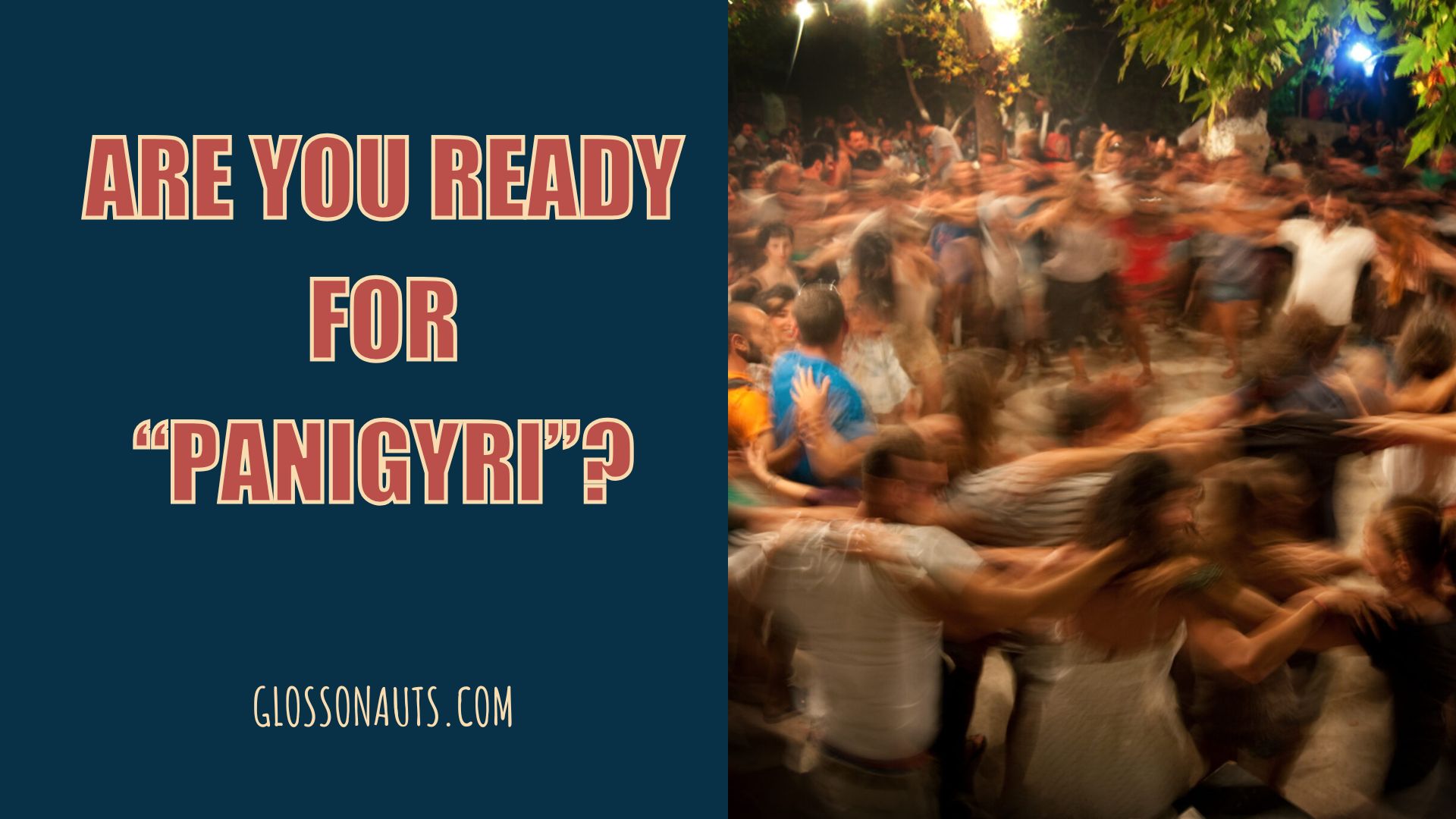
Spring has come, day by day we are getting closer to Easter (Πάσχα) and Greek people can already smell the summer breeze from around the corner, and that means another “panigyri”.
BUT WHAT EXACTLY IS “PANIGYRI?”
To understand the word “panigyri,” we need to delve into its ancient Greek roots. The word “panigyri” (πανηγύρι) originates from the Ancient Greek word “panēguris.” “Panēguris” meant “gathering of people.
It’s composed of: “pan” (παν), meaning “all.”
“ageiro” (ἀγείρω) from which “gyris” derives, meaning “to gather.” Therefore, the word describes a gathering of all of the people.
EVOLUTION OF THE MEANING
Over time, particularly in modern Greek, “panigyri” has come to specifically denote the celebration of a saint’s day or a local religious festival. It also has evolved to include the meaning of a fair, or large, market.
But “panigyri” means more than just a party. It’s typically held in honour of a local saint and is the time when Greeks get together to have fun. They eat, laugh, listen to music, and dance, often until late. It’s a way to forget all the worries and enjoy being with friends and family. This happens at holidays or just when people want to have a good time. It is a big part of how Greeks live and enjoy life.
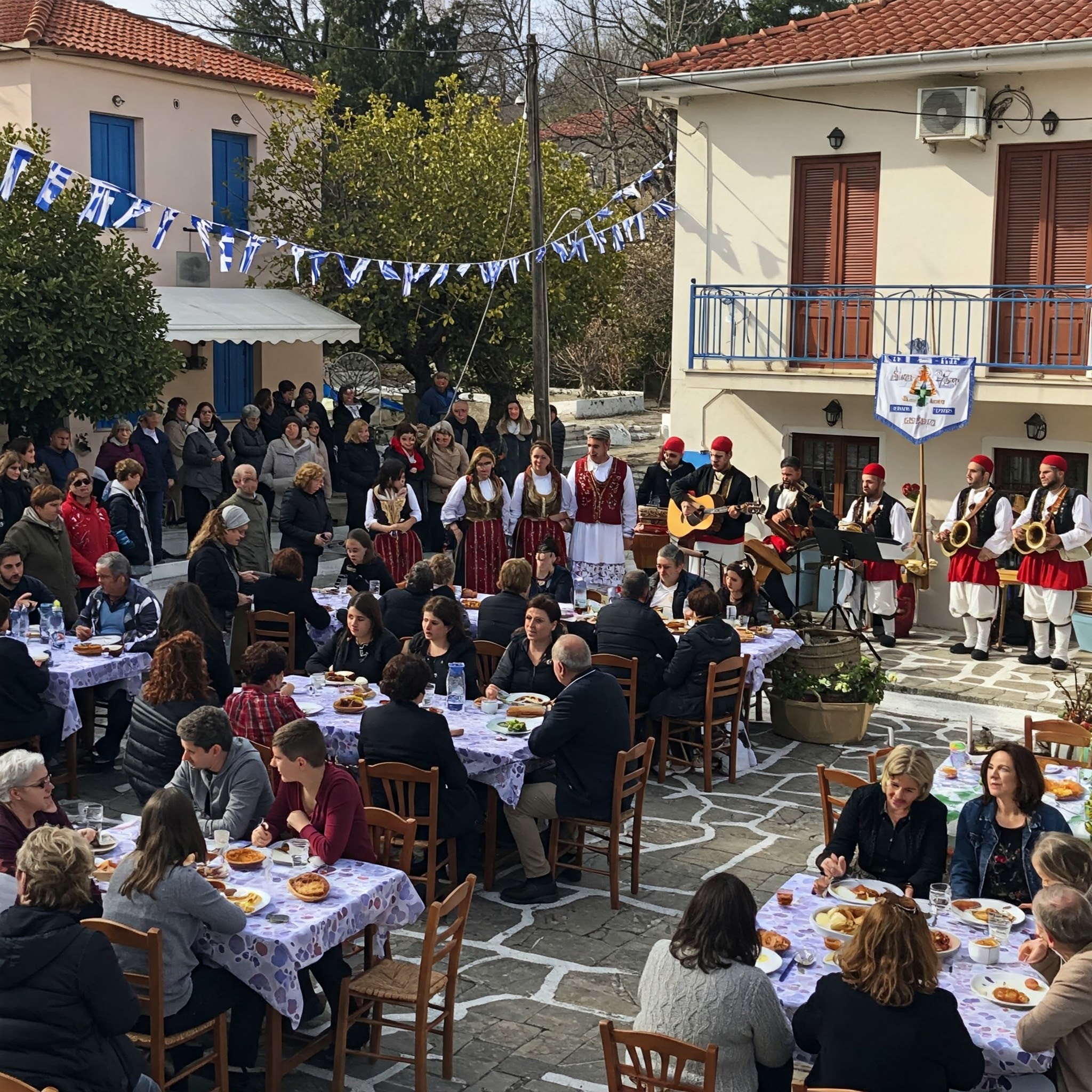
Music is the soul of a “panigyri.” Traditional Greek music, with its melodies and rhythmic beats, sets the stage for celebration. The sounds of the bouzouki, clarinet, and violin fill the air, creating an atmosphere of pure joy. From the melancholic beauty of “rebetiko” (ρεμπέτικο) to the lively rhythms of “island music” (νησιώτικα), the musical landscape of a “panigyri” is as diverse as Greece itself.
For example, each region of Greece has its own unique musical traditions, adding a layer of rich diversity to “panigyri.” The island melodies differ from the mainland tunes, and the mountainous regions have their own distinct sounds. If you happen to have “panigyri” at some traditional taverna, it often features live musicians who play with passion and skill, creating a truly magical experience. Music is often followed by traditional dances such as “syrtos” and “tsamikos.”
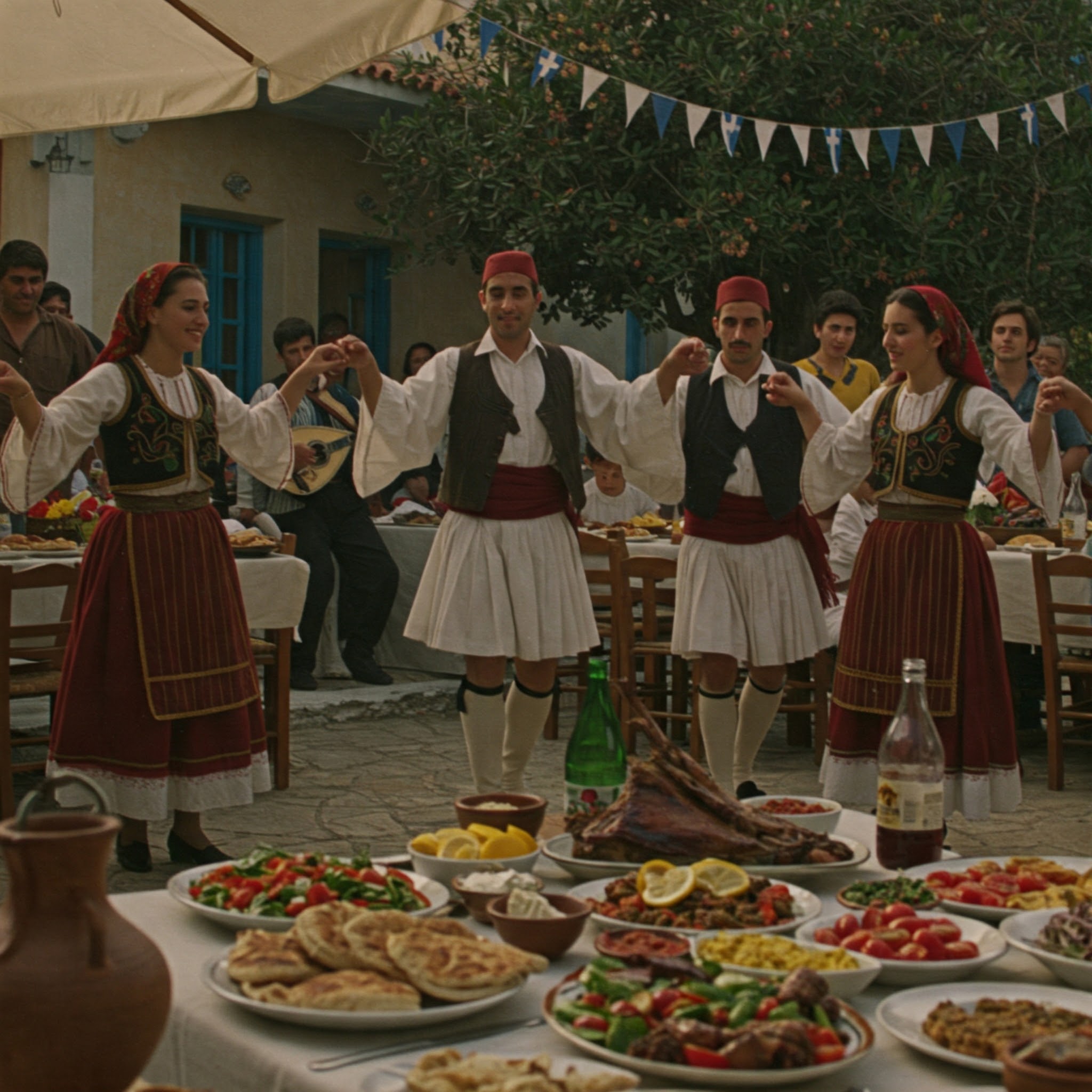
NECESSARY VOCABULARY:
Parea (παρέα): A group of friends or companions
Kefi (κέφι): Joy
Filoxenia (φιλοξενία): Hospitality
Panigiri (πανηγύρι): A local festival or saint’s day celebration.
Meraki (μεράκι): Doing something with soul, creativity, or love; putting your heart into it
Yia mas (για μας): A common toast, meaning “to us.”
Music & Dance:
Bouzouki (μπουζούκι): A traditional Greek stringed instrument.
Clarino (κλαρίνο): Clarinet
Violí (βιολί): Violin.
Tragoudi (τραγούδι): Song
Horos (χορός): Dance
Syrtos (συρτός): A common circular Greek dance.
Tsamiko (τσάμικο): A traditional Greek dance
Rebetiko (ρεμπέτικο): A genre of Greek urban folk music.
Island Music (νησιώτικα): The traditional music from the Greek islands.
Food & Drink:
Mezedes (μεζέδες): appetisers or small dishes served with drinks.
Krasi (κρασί): Wine.
Ouzo (ούζο): A traditional Greek anise-flavoured aperitif.
Psito (ψητό): Roasted meat.
Pita (πίτα): pie or pastry.
So, the next time you have the opportunity, explore the art of “panigyri” and experience the heart of Greek culture. You won’t be disappointed.
And before you go… if you truly want to start mastering Greek in style, we recommend starting with our Greek Crash Course.

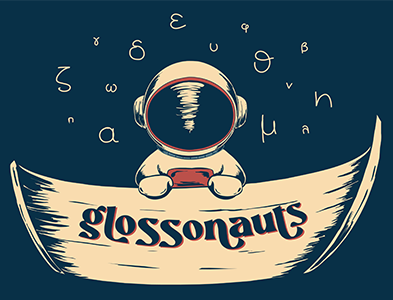


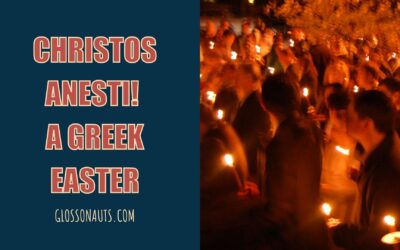


0 Comments